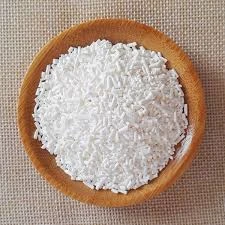
Benefits of Organic NPK Fertilizers for Sustainable Agriculture Growth
The Benefits of Organic NPK Fertilizers for Sustainable Agriculture
In recent years, the agricultural industry has witnessed a significant shift towards sustainable practices, with an increasing emphasis on organic farming. Central to this transition is the use of organic NPK fertilizers, which provide essential nutrients for plant growth while promoting environmental health. NPK stands for nitrogen (N), phosphorus (P), and potassium (K), the three primary macronutrients that crops need in large quantities. Organic NPK fertilizers are derived from natural sources, making them a safer and more sustainable alternative to synthetic fertilizers.
Understanding NPK Nutrients
1. Nitrogen (N) Nitrogen is crucial for plant growth, as it is a key component of amino acids, the building blocks of proteins. It plays a vital role in photosynthesis and overall plant development. A nitrogen deficiency can lead to stunted growth, yellowing of leaves, and reduced yields.
2. Phosphorus (P) Phosphorus is essential for energy transfer in plants. It aids in the formation of DNA and RNA and is crucial for root development and flowering. A lack of phosphorus can result in poor root development, delayed maturity, and low seed yield.
3. Potassium (K) Potassium helps regulate various physiological processes within plants, including water uptake, photosynthesis, and enzyme activation. It enhances disease resistance and improves crop quality. Deficiencies in potassium can lead to weakened plants that are more susceptible to diseases and environmental stress.
The Advantages of Organic NPK Fertilizers
1. Enhanced Soil Health Organic NPK fertilizers improve soil structure and promote microbial activity, which is essential for nutrient cycling. The addition of organic matter from compost or natural sources enhances the soil's ability to retain moisture and nutrients, leading to healthier plants and better yields.
organic npk fertilizer

2. Environmental Protection Unlike synthetic fertilizers, organic NPK fertilizers release nutrients slowly, reducing the risk of nutrient runoff into waterways. This minimizes water pollution and protects aquatic ecosystems from harmful algal blooms and other issues associated with excess nutrients.
3. Biodiversity Support Organic fertilizers often include a variety of beneficial microbes and organic matter that support soil biodiversity. A healthy and diverse soil ecosystem is critical for sustainable agriculture, as it promotes resilience against pests and diseases.
4. Resilience to Climate Change Organic farming, bolstered by the use of organic NPK fertilizers, can help mitigate the effects of climate change. Healthier soils sequester carbon, reducing greenhouse gas emissions while improving agricultural productivity in the face of adverse environmental conditions.
5. Improved Crop Quality Crops grown with organic fertilizers often have higher nutritional value and better flavor, contributing to overall food quality. This is particularly important in a market increasingly focused on fresh, nutritious produce.
Conclusion
The adoption of organic NPK fertilizers is a critical step toward sustainable agriculture. By providing essential nutrients in a more environmentally friendly manner, these fertilizers not only enhance crop yields but also contribute to healthier ecosystems. Farmers who choose organic options benefit from improved soil health, reduced chemical input costs, and the ability to produce high-quality crops that can fetch premium prices in the market.
As consumers become more aware of the impact of their food choices on the environment, the demand for organically grown produce is set to rise. This shift presents an opportunity for farmers to embrace sustainable practices, ensuring both their economic viability and the health of the planet. In conclusion, the integration of organic NPK fertilizers into farming systems is not just a trend but a necessity for a sustainable future in agriculture.
-
Pure Sodium Dichloroisocyanurate Dihydrate | Powerful DisinfectantNewsAug.29,2025
-
Industrial Chemicals: Quality & Purity for Every IndustryNewsAug.28,2025
-
Nitrile Rubber Honoring Strict Production StandardsNewsAug.22,2025
-
Aspartame Ingredients Honoring Food Safety ValuesNewsAug.22,2025
-
Fertilizer for Balanced Plant NutritionNewsAug.22,2025
-
Cyanide Gold Processing with High Purity AdditivesNewsAug.22,2025
-
Formic Acid in Textile Dyeing ApplicationsNewsAug.22,2025
Hebei Tenger Chemical Technology Co., Ltd. focuses on the chemical industry and is committed to the export service of chemical raw materials.
-

view more DiethanolisopropanolamineIn the ever-growing field of chemical solutions, diethanolisopropanolamine (DEIPA) stands out as a versatile and important compound. Due to its unique chemical structure and properties, DEIPA is of interest to various industries including construction, personal care, and agriculture. -

view more TriisopropanolamineTriisopropanolamine (TIPA) alkanol amine substance, is a kind of alcohol amine compound with amino and alcohol hydroxyl, and because of its molecules contains both amino and hydroxyl. -

view more Tetramethyl Thiuram DisulfideTetramethyl thiuram disulfide, also known as TMTD, is a white to light-yellow powder with a distinct sulfur-like odor. It is soluble in organic solvents such as benzene, acetone, and ethyl acetate, making it highly versatile for use in different formulations. TMTD is known for its excellent vulcanization acceleration properties, which makes it a key ingredient in the production of rubber products. Additionally, it acts as an effective fungicide and bactericide, making it valuable in agricultural applications. Its high purity and stability ensure consistent performance, making it a preferred choice for manufacturers across various industries.





